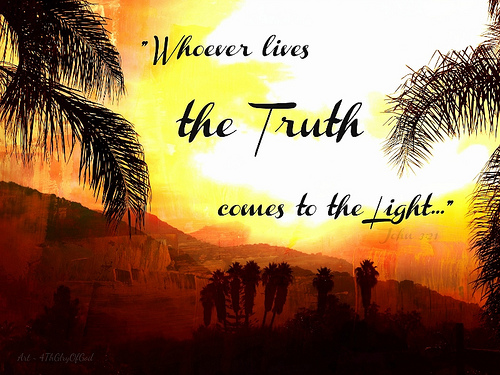You have a worldview, whether you realize it or not.
It affects what is important to you and what you deem trivial. It is the foundation for your character, and it shapes who you become. It also serves as a compass to guide you along the journey of life.
As you formulate your worldview, you have a solemn responsibility–to search for truth.

To honestly seek what is true and what is false about life, there are some questions that simply must be asked, and this Next Right STEPS Blog series will explore several of them.
Here is the first critical question we will examine: Is the Bible true?
Is the Bible True?
If the Bible is true and if it is the inspired word of God, it would make sense that it would align with how the universe operates. The amazing thing is that science and our use of the intellect and logic are in total concert with the Bible:
The Bible is very specific and easily proved or disproved.The Bible describes hundreds of events as well as people’s names, what they did, and where they did it. Thousands of people over hundreds of years have tried to disprove the Bible. Not one shred of tangible evidence has been found to significantly discredit anything in the Bible.
Many findings of archeology have confirmed specific aspects of the Bible. Numerous discoveries have validated different locations, events, and people from the Bible. In addition, no finding of archeology has ever disproved anything in the Bible.
The Bible is the most widely validated book of ancient history. Many manuscripts have been discovered to authenticate it. The New Testament, with thousands of copies, was written from A.D. 40 to 80 and dates fewer than 100 years from events it captures.
Hundreds of prophecies in the Bible accurately predicted future events. Many of these prophecies were very specific. The idea that the fulfillment of these predictions was mere coincidence or chance has been shown to be logically and mathematically absurd.
There is harmony and wisdom in the writing that cannot be explained by accident. The Bible was written over a period of about 1500 years by over 40 authors. From beginning to end, the Bible is a consistent story that meshes together perfectly. There is no reasonable or logical way it could have been created without divine inspiration.
 Historical data from other sources supports the writings in the Bible. Dozens of sources have corroborated more than 100 facts about Jesus’ life, teaching, crucifixion, and resurrection. There are many reliable sources for other biblical subjects as well.
Historical data from other sources supports the writings in the Bible. Dozens of sources have corroborated more than 100 facts about Jesus’ life, teaching, crucifixion, and resurrection. There are many reliable sources for other biblical subjects as well.
Eyewitness accounts form the foundation of the New Testament. The New Testament was written by people who were eyewitnesses themselves or who related the accounts of eyewitnesses of the events they capture. They had direct knowledge of what actually happened. In addition, thousands of their readers at the time were eyewitnesses as well.
You just know. Millions of people find personal verification daily that the Bible is truth.
A Search for Truth
This information is presented in a factual manner to assist you in your search for truth. Hopefully, along the way, you will come to accept that:
- You can use your mind as well as your heart and soul to understand God.
- Science, intellect, and Christianity are in support of each other, not in conflict.
- People who keep an open mind and conduct a sincere search for truth can, in fact, find it.
Christianity, unlike other religions, is not just a belief system; it is based on historical fact. Therefore, it can be investigated and proven intellectually.
That process may not, alone, lead someone to faith. But if you have not yet chosen to commit your life to God, it can be a good place to start.
Question: Do you believe the Bible is true?
Action: Check out “A Search for Truth – Part 2.”
Photo by Art4TheGlryOfGod  Photo by Art4TheGlryOfGod
Photo by Art4TheGlryOfGod  Photo by archer10 (Dennis) (55M Views)
Photo by archer10 (Dennis) (55M Views) 

